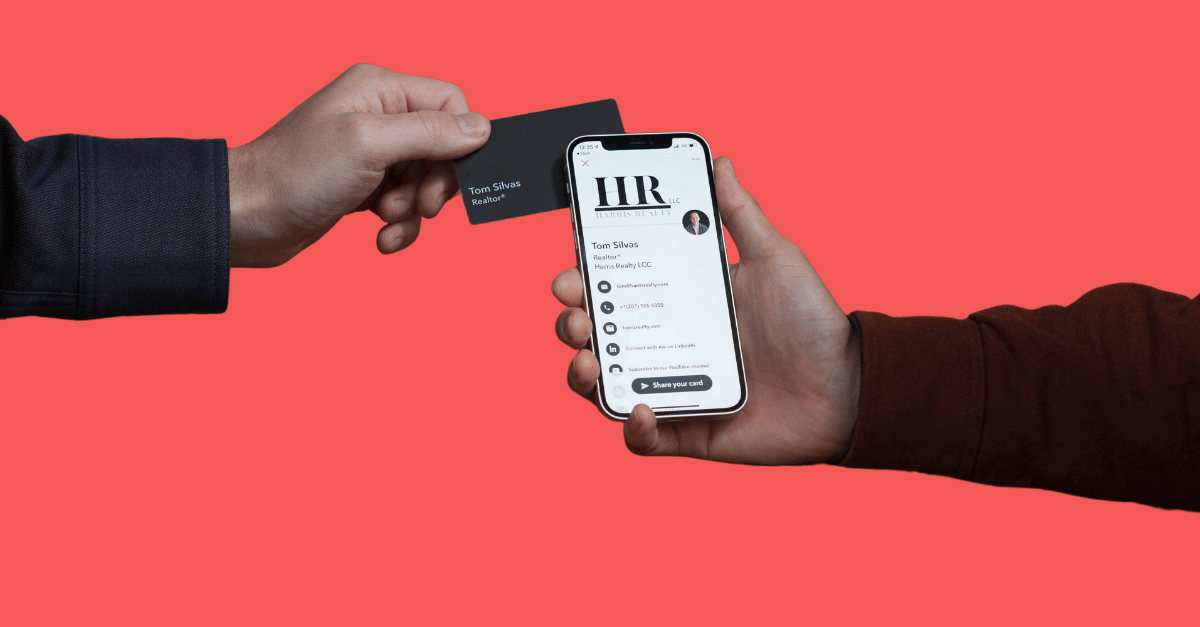In today’s digital age, the exchange of contact information has become more efficient and seamless. Near-field communication (NFC) business cards have emerged as a game-changer in this realm, leveraging smart technology to simplify contact information exchange. This blog will delve into the concept of NFC cards and explore their benefits, applications, and how they can facilitate effective networking.
Understanding NFC Technology:
Near-field communication (NFC) is a short-range wireless communication technology that allows devices in close proximity to establish a connection and exchange data. NFC business cards utilize this technology to enable contact information exchange with a simple tap.
How NFC Business Cards Work:
NFC business cards consist of two main components: a digital business card and an NFC tag. The digital business card contains all the contact information that you wish to share, such as name, phone number, email address, and social media profiles. The NFC tag, usually in the form of a sticker or a physical card, is embedded with a small chip that holds the digital business card data.
Benefits of NFC Business Cards:
a. Convenient and Efficient: With NFC business cards, exchanging contact information becomes a hassle-free process. Instead of manually entering details or exchanging physical cards, users can simply tap their NFC-enabled devices against the NFC tag and instantly receive the digital business card.
b. Eco-Friendly and Cost-Effective: NFC business cards reduce the need for printing physical business cards. This not only saves resources but also cuts down on costs associated with printing and reprinting as contact information changes.
c. Enhanced Networking Experience: NFC business cards stand out in networking events, conferences, and business meetings. They leave a lasting impression and demonstrate your adaptability to the latest technology trends.
Applications of NFC Business Cards:
a. Professional Networking: NFC business cards streamline the process of exchanging contact information during networking events. By tapping their NFC-enabled devices, professionals can quickly and effortlessly exchange details, ensuring a seamless follow-up.
b. Sales and Marketing: NFC-enabled business cards can be utilized in sales and marketing to direct customers to specific websites, landing pages, promotional offers, or social media profiles. This allows for targeted marketing and facilitates lead generation.
c. Personal Use: NFC business cards are not limited to professional networking. They can be employed for personal use, such as sharing contact information at social gatherings or facilitating connections in non-work-related scenarios.
Future Trends and Integration:
As NFC technology continues to evolve, its integration with other applications and devices is being explored. For instance, NFC-enabled smartphones can sync with smart home devices, access public transportation, or make contactless payments. The integration of NFC technology with business cards opens up new possibilities for seamless connectivity and enhanced user experiences.
Conclusion:
NFC business cards have revolutionized the way contact information is exchanged. With their convenience, streamlined process, and environmental benefits, they offer a modern and efficient approach to networking. As this technology continues to evolve, the possibilities for NFC integration in various aspects of our lives are endless. Embracing NFC business cards can enhance personal and professional connections while showcasing an individual’s adaptability to emerging technologies.
By utilizing NFC technology, individuals can stay ahead of the curve, leaving a memorable impression in the digital era of information exchange.
Keywords: NFC business cards, contact information exchange, near-field communication, networking, smart technology, convenience, applications, integration.

